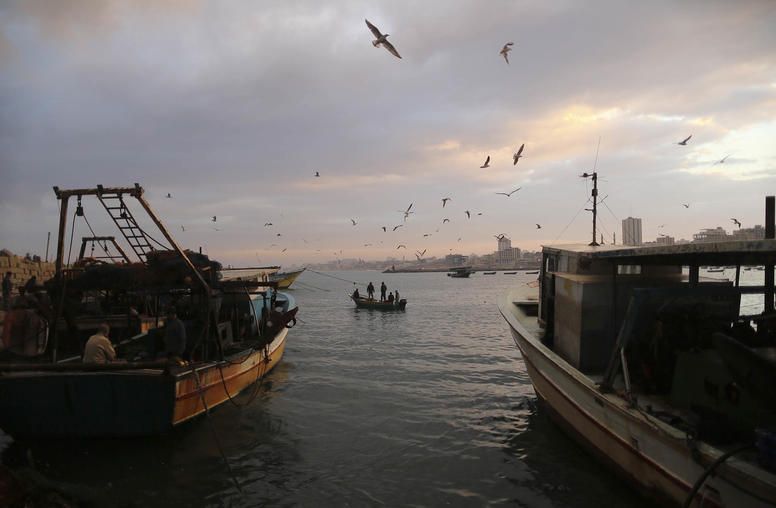The U.S. Institute of Peace (USIP) held its third annual conference on security sector governance on May 10, drawing in activists from North Africa and the Middle East as well as former U.S. ambassadors to the region to assess the political and security-sector challenges arising from the “Arab Awakening.”
The security issues and the necessary reforms vary country-by-country, said Robert Perito, director of USIP’s
Security Sector Governance Center of Innovation. The challenges range from restoring basic security on the streets to disarming militias to a variety of policy reforms, Perito said, and handling them successfully would constitute a “vital” step toward the establishment of democratic rule. The Institute is playing an “important role building momentum behind security sector reform” in this important region, added USIP President Richard Solomon. USIP’s focus on security sector governance reflects an effort to fill the often-neglected need to help countries in transition build sustainable institutions that can support professional police and military forces.
Radwan Masmoudi, president of the Tunisia-based Center for the Study of Islam and Democracy, called the ouster of Zini El Abidine Ben Ali’s long-running regime last year a “smart revolution” in that revolutionary impulses have been tempered with the requirements of reform. He said that only 15 senior officials from the previous regime are now in jail. Tunisians, however, “are constantly worried and afraid that these [old regime] elements will be planning a counterrevolution.” He said “the people of Tunisia expect to see justice.”
Magda Boutros, director of the criminal justice unit at the Egyptian Initiative for Personal Rights, described reform efforts to make Egypt’s police, army and intelligence agencies accountable to civilian, democratic rule and to “make them stick with security matters.” Boutros expressed concern that in an effort to hold on to significant economic and political privileges, Egypt’s ruling Supreme Council of the Armed Forces (SCAF) is seeking to guide change in a way that “means many internal security and justice matters will be kept in the hands of the military.” Boutros said, “The security sector should be priority number one right now in Egypt if we are serious about a transition to democracy.”
Hesham Sallam, an Egyptian researcher and a USIP peace scholar, agreed that the SCAF maintains control over the political arena and that security sector reform should be viewed as “the epicenter” of democratization.
In Syria, meanwhile, the regime of Bashar Assad “holds the crucial threads of power,” including those in the security sector, said Murhaf Jouejati, chairman of the opposition National Consensus Movement and a member of the Syrian National Council. He called for greater international support for opponents of the regime, and focused attention on the security risks that would be triggered immediately upon the fall of the Assad government. “I predict a lot of chaos,” he said, adding that the opposition is working on a plan to deal with the possibility of looting, attacks on institutions of government and an outbreak of crime.
Najla Elmangoush, a former spokesperson with Libya’s National Transitional Council, noted that the country’s army and other security institutions need complete rebuilding after the Qaddafi years, and that the Army will need to be placed under civilian, democratic authority. As for Yemen, human rights activist Rana Jarhum described the network of relatives of former President Ali Abdullah Saleh occupying senior positions in the military services and other security agencies as part of the challenge of professionalizing the sector under civilian government. She called Yemen’s complex internal dynamics as “basically [a] family feud.”
The USIP conference also drew four former ambassadors who represented the United States in countries of the region. They analyzed political and security reform prospects in a separate session.
Rust Deming, who was ambassador to Tunisia from 2000-2003 and is now with the School of Advanced International Studies at Johns Hopkins University, cited the need to restore the integrity of the country’s police, which he said had been undermined during the Ben Ali regime. Deming said he believes Tunisia has “the best chance” to move ahead of any of the region’s countries.
Deborah Jones, ambassador to Kuwait from 2008-2011 and now serving as the Naval War College State Department advisor, focused on the countries of the Gulf Cooperation Council (GCC), saying “we have not seen a transition per se.” The GCC role in responding to political pressures in the region, she said, represented a “circling [of] the wagons among themselves” as the GCC countries seek to prevent chaos or spillover effects from the unrest in Yemen and Bahrain.
Thomas Riley, ambassador to Morocco from 2003-2009 and now an advisor to BrightSource Energy, singled out the bulging youth populations of many of the countries involved in the Arab Awakening and their high, destabilizing rates of unemployment. He urged that U.S. assistance supporting the transitions in the region receive stronger follow-up evaluations on their effectiveness.
Barbara Bodine, the ambassador to Yemen from 1997-2001 who is currently with the Woodrow Wilson School of Public and International Affairs at Princeton University, recalled the lengthy process by which Yemeni factions arrived at an agreement setting Saleh’s departure as president last fall and the subsequent transition. She called it “a very Yemeni approach” resulting in a “negotiated revolution.” Yemen’s security agencies need to be restructured, professionalized and brought under civilian control, she said, and the new government’s commitments to security sector reform represent a “major test” of its leadership. She cautioned that U.S. policy should not focus only on the threat posed by al Qaeda in the Arabian Peninsula. With Yemen facing huge challenges in education, poverty, unemployment, basic services and stabilizing the country, she added, “just fixing the security services is not going to fix Yemen.”




